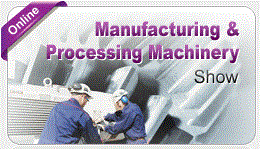Unlocking the Power of Custom Hydraulic Power Units: A Comprehensive Guide
- gtbmsbcs
- 2025年5月14日
- 讀畢需時 3 分鐘
In industries where formidable power and precise control are essential, hydraulic systems serve as the backbone of many critical operations. While standard hydraulic power units (HPUs) are widely used, they often lack the flexibility and efficiency required for specialized applications. This comprehensive guide explores the advantages of custom hydraulic power units, detailing their design process, benefits, and real-world industrial implementations.
Understanding Hydraulic Power Units: Core Components & Functions
Hydraulic power units convert mechanical energy into hydraulic energy through pressurized fluid, enabling powerful and precise motion control in machinery. The main components of an HPU include:
Reservoir: Stores hydraulic fluid and dissipates heat.
Pump: Converts mechanical power into fluid flow.
Motor: Drives the pump efficiently.
Valves: Control fluid flow and pressure.
Actuators: Convert hydraulic energy back into mechanical motion.
Together, these components ensure reliable, efficient operation across industries such as construction, aerospace, manufacturing, and more.

The Need for Customization in Hydraulic Power Units
Every industry faces unique challenges, from environmental conditions to spatial constraints and performance demands. Off-the-shelf HPUs are designed for general use and may not deliver optimal efficiency or longevity in specialized applications.
Custom hydraulic power units are engineered to meet:
Specific pressure and flow rate requirements
Temperature and environmental constraints
Compact or irregular installation spaces
Integration with existing automated systems
By tailoring each element, custom HPUs maximize operational efficiency and reduce maintenance costs.
Steps to Designing Custom Hydraulic Power Units
1. Assessing Operational Requirements
Begin by thoroughly analyzing the application’s needs, including pressure ranges, flow rates, temperature extremes, and physical dimensions. This foundational step ensures the HPU is fit for purpose.
2. Collaborating with Hydraulic Experts
Work closely with engineers and specialists who translate operational demands into precise technical specifications. Their expertise ensures a balance between performance and cost-effectiveness.
3. Selecting High-Quality Components
Choose pumps, motors, valves, and electrical parts that meet durability and efficiency standards tailored to your application.
4. Advanced Design and Prototyping
Use cutting-edge CAD software and prototyping tools to create detailed digital models, verifying component compatibility and system integration before manufacturing.
5. Rigorous Testing and Iteration
Conduct comprehensive tests on prototypes to validate performance. Use iterative refinements to perfect the design and ensure reliability under real-world conditions.
Key Benefits of Custom Hydraulic Power Units
Precision and Efficiency: Tailored control over hydraulic processes reduces energy consumption and enhances accuracy.
Enhanced Performance: Aligns unit capabilities precisely with operational requirements.
Space Optimization: Custom dimensions allow seamless integration into compact or complex installations.
Reliability and Longevity: Use of premium components and robust engineering ensures durability in demanding environments.
Applications of Custom Hydraulic Power Units
Aluminum Rolling Mill Plant Expansion
AirDraulics engineered three custom HPUs specifically for an aluminum rolling mill expansion. These units met stringent operational specifications, ensuring reliable performance and smooth integration with existing equipment.
Manufacturing and Series Production
Custom hydraulic power units are essential in modern manufacturing, where precision and efficiency are critical. AnyPower’s tailored HPU solutions offer low noise, minimal temperature rise, and reliable performance for CNC machining and series production. These units enhance productivity while reducing maintenance costs and ensuring seamless integration into automated systems.
Compact to Large-Scale Industrial Systems
Zeus Hydratech Limited delivers custom hydraulic power units ranging from compact designs to large industrial implementations, meeting diverse client needs with precision and reliability.
Specialized Applications and Micro Hydraulics
HANSA-FLEX and Presservice demonstrate expertise by developing HPUs from micro hydraulics to large press systems, providing flexible solutions across various industries.
Frequently Asked Questions (FAQ)
Q1. What industries benefit most from custom hydraulic power units?
Industries such as manufacturing, aerospace, automotive, construction, and metal processing benefit greatly due to their unique performance and space requirements.
Q2. How does customization improve energy efficiency?
By precisely matching components and system design to operational demands, custom HPUs minimize wasted energy and optimize hydraulic fluid flow.
Q3. What is the typical lead time for a custom HPU?
Lead times vary depending on complexity but generally range from a few weeks to several months, including design, prototyping, and testing phases.
Q4. Can custom HPUs be integrated into existing systems?
Yes, custom units are designed to fit existing spatial and operational constraints, ensuring seamless integration.
Conclusion
Custom hydraulic power units represent the pinnacle of hydraulic engineering, offering bespoke solutions tailored to the precise needs of diverse industries. Investing in a custom HPU enables businesses to achieve unparalleled performance, efficiency, and reliability in their hydraulic operations. By following a meticulous design process and leveraging expert collaboration, companies can unlock the full potential of hydraulic technology to meet today’s demanding industrial challenges.




留言